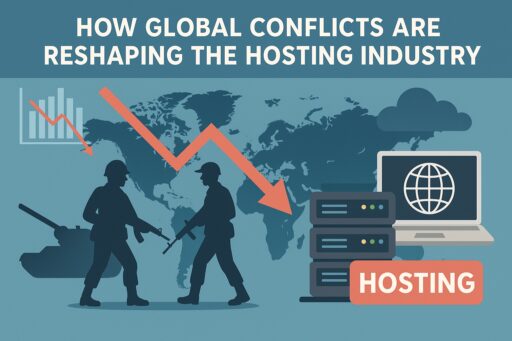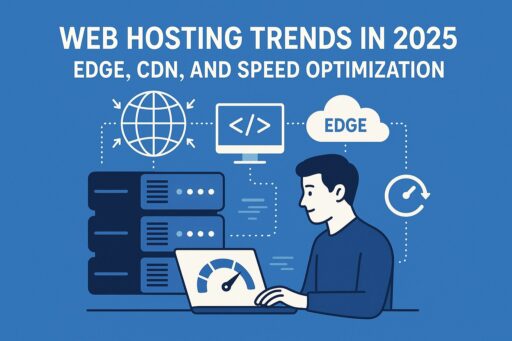
Healthcare organizations handle a lot of sensitive patient information every day. Keeping this data safe is not only important but also a legal requirement under HIPAA rules. Regular hosting services often do not provide the level of security or compliance needed to protect this information. This is where HIPAA-compliant hosting services help.
These services are designed to protect patient data with strong security measures like encryption, access controls, backups, and continuous monitoring. Using HIPAA-compliant hosting helps healthcare providers stay within the law, avoid expensive fines, and build trust with patients.
ProlimeHost makes this easier by offering secure and fully managed dedicated servers and VPS hosting. With features like server hardening, 24/7 monitoring, intrusion detection, and reliable backups.
ProlimeHost gives healthcare businesses a safe and scalable way to host their data while meeting HIPAA requirements.
Contact us today!
What are HIPAA Compliant Hosting Services?
HIPAA-compliant hosting services are specialized server environments designed to meet the Health Insurance Portability and Accountability Act (HIPAA) requirements for handling electronic Protected Health Information (ePHI).
These hosting solutions go beyond standard web hosting by implementing stringent administrative, physical, and technical safeguards to ensure patient data remains secure and confidential.
Key characteristics of HIPAA-compliant hosting include:
- Business Associate Agreement (BAA): A legal contract between the hosting provider and the healthcare organization outlining shared responsibilities for maintaining compliance.
- Data Encryption: Protection of sensitive data both at rest and during transmission to prevent unauthorized access.
- Access Controls: Role-based access and authentication mechanisms to limit data exposure.
- Intrusion Detection & Monitoring: Continuous monitoring and real-time alerts to quickly detect and respond to potential threats.
- Backup and Disaster Recovery: Redundant, encrypted backups with tested recovery protocols to ensure data availability.
HIPAA-compliant hosting is essential for healthcare organizations, SaaS platforms, and businesses that store, process, or transmit PHI. By leveraging dedicated servers or managed hosting environments built to HIPAA standards, organizations can ensure data integrity, regulatory compliance, and uninterrupted service delivery.
Why Healthcare Organizations Need HIPAA-Compliant Hosting?
Healthcare organizations handle vast amounts of sensitive patient information that must be safeguarded at every stage: storage, transmission, and access. A standard hosting environment often lacks the advanced security measures and compliance protocols required to protect this data under HIPAA regulations.
Here’s why HIPAA-compliant hosting is essential:
- Regulatory Compliance: It ensures that hosting infrastructure adheres to HIPAA’s strict privacy and security rules, helping organizations avoid legal penalties and audits.
- Data Security and Encryption: Advanced encryption, intrusion detection systems, and access controls protect ePHI from unauthorized access and cyber threats.
- Business Continuity: HIPAA-compliant hosting includes disaster recovery solutions and redundant backups, ensuring uninterrupted access to patient data during outages or emergencies.
- Risk Mitigation: Continuous monitoring and security audits reduce the risk of breaches that could lead to financial losses and reputational damage.
- Trust and Patient Confidence: By using compliant hosting, healthcare organizations demonstrate their commitment to safeguarding patient information, which strengthens trust and reliability.
This level of protection is crucial for medical practices, hospitals, telehealth platforms, and healthcare software providers that rely on secure, dedicated, or managed hosting solutions to handle critical patient data.
Core Features of HIPAA-Compliant Hosting Services
HIPAA-compliant hosting goes beyond standard web hosting by incorporating strict administrative, technical, and physical safeguards to protect sensitive healthcare data.
For organizations that manage patient information, these features are not optional but essential to maintaining compliance and trust.
Business Associate Agreement (BAA) and Its Importance
A BAA is the cornerstone of HIPAA compliance in hosting services. This legally binding agreement defines the hosting provider’s responsibilities in safeguarding Protected Health Information (PHI).
It ensures that both the organization and hosting provider understand their obligations for data privacy, breach notifications, and ongoing compliance monitoring. Without this agreement, even a secure infrastructure cannot be considered HIPAA-compliant.
Encryption and Data Security Standards
HIPAA hosting environments utilize advanced encryption protocols to protect PHI during data transfer and while stored on servers. This includes SSL/TLS for data in transit and AES-256 or stronger encryption for data at rest.
Combined with network firewalls, intrusion prevention systems, and regular security patching, these measures create multiple layers of defense against cyber threats.
Access Controls and Audit Trails for PHI Protection
To comply with HIPAA requirements, hosting services implement strict access controls that ensure only authorized users can access sensitive data. This often includes role-based permissions, multi-factor authentication, and session timeout policies.
Additionally, detailed audit trails are maintained to log every access attempt and system action. These records are crucial for security audits, incident investigations, and demonstrating compliance during regulatory reviews.
Backup, Disaster Recovery, and Intrusion Detection
Data availability is a critical aspect of healthcare operations. HIPAA-compliant hosting services provide automated, encrypted backups stored in redundant locations to protect against data loss.
Disaster recovery plans are built into the infrastructure, enabling rapid restoration of services in the event of hardware failures, cyberattacks, or natural disasters. Real-time intrusion detection systems continuously monitor for suspicious activity, allowing immediate response to potential breaches and reducing the risk of downtime or data compromise.
Benefits of Using HIPAA-Compliant Hosting Services
HIPAA-compliant hosting offers healthcare organizations more than just data security; it provides a complete environment designed to meet regulatory, operational, and performance demands.
Here’s how compliant hosting supports healthcare providers and their digital platforms.
Strengthen Data Protection and Privacy
Handling Protected Health Information (PHI) requires robust safeguards that go beyond standard hosting. HIPAA-compliant hosting ensures that all data is protected using advanced encryption methods for data in transit and at rest.
Intrusion detection systems and proactive monitoring help prevent unauthorized access, while regular vulnerability scans strengthen overall security. Additionally, hosting providers maintain strict physical security measures within their data centers to protect servers against breaches or damage.
Ensure Regulatory Compliance and Risk Mitigation
Healthcare organizations face significant penalties for failing to comply with HIPAA regulations. Compliant hosting environments provide the necessary administrative, physical, and technical safeguards to meet these legal requirements.
Providers sign a Business Associate Agreement (BAA) that defines their shared responsibilities in protecting PHI. With continuous compliance monitoring and audit-ready reporting, organizations reduce their exposure to fines, lawsuits, and operational disruptions resulting from non-compliance.
Enhance System Reliability and Uptime
Reliable access to patient information and healthcare applications is critical for medical operations. HIPAA-compliant hosting services are built with high-performance infrastructure, redundant network connections, and robust backup systems.
These measures ensure maximum uptime and quick disaster recovery in the event of hardware failures or cyber incidents. Automated failover systems help maintain uninterrupted access to critical data, minimizing downtime that could disrupt healthcare services.
Support Scalable Healthcare Applications
Healthcare organizations often experience rapid growth in data volume and user demands. HIPAA-compliant hosting supports scalable solutions that can accommodate these evolving needs without compromising security or performance.
The environment is optimized for hosting specialized healthcare applications, electronic medical records (EMRs), and telehealth platforms, allowing organizations to expand services as required while maintaining strict compliance standards.
Key Requirements to Look for in HIPAA-Compliant Hosting
Selecting a HIPAA-compliant hosting provider requires careful evaluation of multiple technical and operational factors to ensure patient data remains secure and accessible. Healthcare organizations should focus on these key requirements when choosing a hosting solution.
Evaluate Security and Compliance Certifications
A strong HIPAA-compliant hosting service must adhere to recognized security and compliance frameworks. Look for evidence of audits or certifications that align with HIPAA requirements, such as SOC 2 Type II or ISO 27001.
These certifications demonstrate that the hosting environment has been independently validated for data protection, physical security, and operational reliability. Regular internal audits, vulnerability assessments, and strict adherence to HIPAA’s administrative and technical safeguards further ensure that sensitive data is protected at all levels.
Verify SLA Commitments and Uptime Guarantees
Downtime in healthcare IT systems can disrupt operations and compromise patient care. Reliable HIPAA-compliant hosting includes a strong Service Level Agreement (SLA) with uptime guarantees (commonly 99.9% or higher).
The SLA should clearly outline the provider’s responsibilities for network availability, performance monitoring, and compensation in case of service interruptions. Hosting environments must also feature redundant power supplies, network paths, and advanced failover mechanisms to minimize downtime risks.
Assess Managed Support and Technical Expertise
HIPAA compliance involves continuous server monitoring, timely patching, and proactive security management. Ensure the hosting provider offers expert managed support with a dedicated team experienced in healthcare hosting.
Technical support should be available 24/7 to address server issues, conduct security scans, and provide regular compliance updates. Access to certified engineers can significantly reduce the burden on internal IT teams, ensuring secure and optimized hosting for healthcare applications.
Confirm Disaster Recovery and Incident Response Protocols
Data breaches and outages can have severe consequences for healthcare organizations. A robust HIPAA-compliant hosting solution must include a comprehensive disaster recovery plan, automated encrypted backups, and clearly defined Recovery Time Objectives (RTOs) and Recovery Point Objectives (RPOs).
Additionally, incident response protocols should detail how threats are detected, contained, and resolved. Continuous monitoring, intrusion detection systems, and forensic reporting capabilities further strengthen an organization’s ability to respond to and recover from potential cyber incidents.
Cost Considerations for HIPAA-Compliant Hosting
To choose HIPAA-compliant hosting involves more than just finding the lowest price. The cost reflects the specialized infrastructure, strict security protocols, and dedicated support needed to meet healthcare data protection standards.
Understanding the factors that influence pricing can help healthcare organizations budget effectively while maintaining regulatory compliance and system reliability.
Factors That Influence HIPAA-Compliant Hosting Pricing
The cost of HIPAA-compliant hosting varies based on several factors:
- Server Type and Resources – Dedicated servers generally cost more than VPS hosting because they offer isolated resources, higher processing power, and better control.
- Managed Support Level – Fully managed hosting, which includes around-the-clock monitoring, patching, backups, and server hardening, adds to the cost but reduces internal IT workload and improves compliance management.
- Advanced Security Features – Encryption, intrusion detection, DDoS protection, and automated backups are integral to HIPAA compliance and contribute to overall pricing.
- Geographic Data Center Location – Hosting in regions with advanced compliance infrastructure and redundancy can slightly increase pricing but enhances security and reliability.
- Control Panel and Add-ons – Choosing licensed control panels like cPanel or DirectAdmin, additional IP addresses, or premium backup storage also impacts total monthly costs.
Balancing Security, Compliance, and Affordability
While HIPAA-compliant hosting is typically more expensive than standard hosting, cutting costs at the expense of compliance can lead to severe legal and financial penalties. The goal is to balance affordability with the level of protection required for patient data.
Organizations can achieve cost efficiency by:
- Selecting the right server size to avoid overpaying for unused resources.
- Leveraging managed services to reduce the need for in-house DevOps teams.
- Choosing providers with built-in compliance features, reducing the need for third-party tools.
- Ensuring uptime and backup guarantees are included in the base price to avoid hidden costs.
Ultimately, HIPAA-compliant hosting should be seen as a strategic investment that safeguards sensitive healthcare data, maintains regulatory alignment, and supports long-term operational stability.
How to Choose the Right HIPAA-Compliant Hosting Provider
The right HIPAA-compliant hosting provider is a critical decision for healthcare organizations and businesses handling protected health information (PHI). Beyond technical specifications, the choice must align with long-term compliance needs, operational scalability, and reliable support.
Define Your Organization’s Compliance Needs
Start by identifying your specific HIPAA requirements. Determine whether you need a VPS or a dedicated server environment based on your application type, patient data volume, and level of control required.
If you handle large-scale PHI processing, dedicated servers are typically better suited due to their isolated resources and enhanced security controls. Ensure the provider can sign a Business Associate Agreement (BAA) and offers features like encryption, monitoring, and secure backups as part of its hosting packages.
Assess Infrastructure Flexibility and Future Scaling
Your hosting solution should support seamless growth without requiring a complete migration later. Look for providers offering a range of server options, from starter VPS plans to high-performance dedicated servers, allowing you to upgrade resources (CPU, RAM, storage) as your organization expands.
Infrastructure adaptability is essential for accommodating increasing patient data, new applications, and evolving healthcare services without disrupting operations.
Understand Shared Responsibility for Compliance
HIPAA compliance is a shared responsibility between your organization and the hosting provider. While the provider secures the infrastructure, physical servers, and core systems, your internal team must manage application-level security, user access policies, and staff training.
Clarify which aspects of compliance the provider handles such as patch management, intrusion detection, and encrypted backups and what remains your responsibility to avoid gaps in compliance.
Evaluate Support Availability and Response Times
Healthcare applications require continuous uptime and immediate issue resolution. Verify that the provider offers 24/7/365 technical support with rapid response times.
Managed hosting options are particularly valuable as they include proactive monitoring, server hardening, and regular security audits. A responsive support team reduces the risk of downtime and ensures quick action during security incidents or system failures.
Best Practices for Maintaining HIPAA Compliance on Hosted Servers
Organizations handling patient data must follow ongoing measures to stay HIPAA-compliant. These practices strengthen security, reduce risks, and ensure continuous regulatory alignment.
Apply Regular Security Audits and Monitoring
Continuous monitoring of hosted servers is essential for early detection of vulnerabilities and potential breaches. Regular security audits help identify misconfigurations, outdated software, or unpatched systems that could compromise PHI.
Advanced intrusion detection systems and real-time logging further enhance visibility, enabling quick responses to suspicious activities and ensuring servers remain aligned with HIPAA security requirements.
Implement Access Management and Role-Based Permissions
Controlling who can access PHI is a key component of HIPAA compliance. Implement strict access management policies that limit user permissions based on their role within the organization.
Use multi-factor authentication, IP restrictions, and secure credential management to reduce unauthorized access risks. Maintaining detailed audit trails of all login activities helps track and verify access compliance.
Conduct Routine Staff Training and Policy Updates
Even with robust infrastructure security, human error remains a common cause of data breaches. Regular staff training ensures employees understand HIPAA requirements, safe data handling practices, and incident reporting protocols.
Periodic updates to security policies and procedures keep teams informed about evolving threats and compliance standards, reducing the likelihood of accidental PHI exposure.
Maintain Continuous Backup and Recovery Readiness
HIPAA requires healthcare organizations to have disaster recovery measures to protect PHI during outages, cyberattacks, or system failures. Schedule encrypted, automated backups of critical data and store them securely in multiple locations.
Conduct routine recovery tests to verify that data can be restored quickly without compromising compliance. This ensures uninterrupted patient care and operational resilience during unexpected incidents.
Conclusion
Choosing the right HIPAA-compliant hosting service is crucial for healthcare organizations that handle sensitive patient information. With growing cyber threats and strict regulations, using standard hosting services can put data at risk and lead to costly penalties.
A secure and compliant hosting setup ensures that patient information is protected, systems run smoothly, and healthcare providers can focus on delivering care instead of worrying about technical risks.
ProlimeHost is a reliable choice for businesses that need HIPAA-ready hosting without unnecessary complexity. With fully managed dedicated servers and VPS hosting, strong encryption, 24/7 monitoring, disaster recovery plans, and expert technical support, ProlimeHost gives you everything needed to stay secure and compliant.
Whether your healthcare organization is small or growing fast, ProlimeHost’s solutions are designed to scale while keeping data protected.
Get started with ProlimeHost today and host your healthcare applications on a secure, HIPAA-compliant platform you can trust.
Frequently Asked Questions (FAQs):
What Makes a Hosting Service HIPAA-Compliant?
A hosting service is considered HIPAA-compliant when it meets the strict technical, physical, and administrative safeguards required by the Health Insurance Portability and Accountability Act.
This includes strong data encryption, secure network configurations, continuous monitoring, role-based access control, and comprehensive audit logging. Additionally, the hosting provider must offer a Business Associate Agreement (BAA) that legally binds them to maintain HIPAA-level security standards.
Do HIPAA-Compliant Hosts Provide a Signed BAA?
Yes, a signed Business Associate Agreement is mandatory for any hosting provider that handles Protected Health Information (PHI).
The BAA defines the responsibilities of the hosting provider and the covered entity, ensuring both parties understand their obligations for securing sensitive healthcare data. Without a signed BAA, the hosting service cannot be considered HIPAA-compliant.
Can HIPAA Compliance Be Achieved on Any Server?
Not every server setup automatically ensures HIPAA compliance. While a dedicated or virtual private server can meet the requirements, it must be properly configured with the necessary safeguards.
This includes secure operating system hardening, strict firewall rules, access management, intrusion detection systems, encrypted backups, and adherence to HIPAA’s technical standards. Compliance also depends on the organization’s policies and practices, as hosting providers and healthcare entities share responsibility for maintaining a compliant environment.




